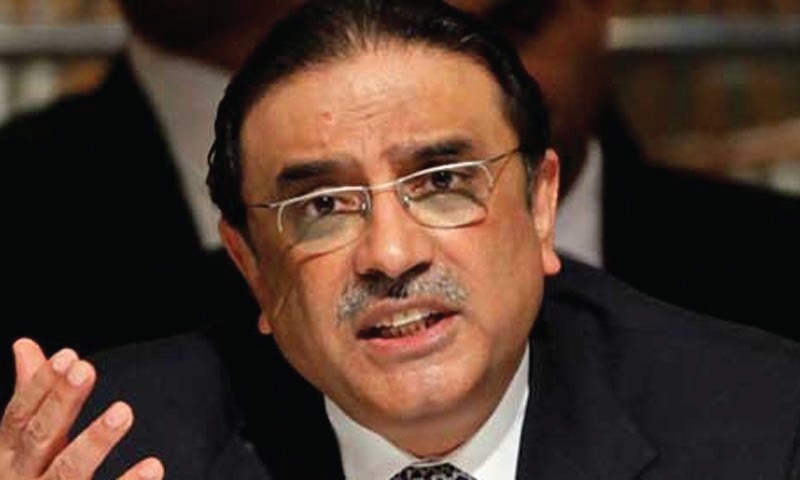I know the art of war better than anyone else—Asif Ali Zardari

From the Herald's 2015 archives ...
Pakistan Peoples Party (PPP) co-chairman Asif Ali Zardari is infamous for many things; an ‘outburst’ against the most powerful institution in the country was not one of them. So when he railed against the military establishment on June 16 at an oath-taking ceremony for PPP office-bearers in Islamabad, it came as a surprise to political analysts and smug satisfaction for his political opponents.
In a nearly 15-minute long speech, Zardari took jabs at the Pakistan Tehreek-e-Insaf (PTI) and ruling Pakistan Muslim League-Nawaz (PMLN) and General (retd) Pervez Musharraf. He spoke against the interference of the army in politics and the character assassination of his party. “We know the country better and we know how to run its affairs,” he said. “You have been warned, you have been warned, you have been warned.”
These words and boisterous threats followed the Director General Sindh Rangers’ claims that “political leaders, civil servants and gang lords” were responsible for much of the organised crime in Karachi and a raid by the Rangers on the Sindh Building Control Authority office.
PPP members were quick to come to their leader’s defence, asking others to take the “context” of his words into consideration. More than the military, however, the speech seemed to cause offense to Zardari’s political opponents and allies in democracy. “Political suicide” optimistically declared his childhood friend Zulfiqar Mirza while Prime Minister Nawaz Sharif cancelled a meeting with him. Both PMLN and PTI members were missing from the iftar dinner held by Zardari a few days after his outburst.
The only son of a second-tier nationalist politician and landowner in Sindh, Zardari’s father owned cinema halls in Karachi. “I had the opportunity of watching a lot of films and dreaming a lot,” he said in an interview in 2010. Known for his love of polo and partying, he was a regular among Karachi’s night life crowd.
He contested and lost a district council seat from Nawabshah in 1983 but his real introduction to politics came in 1987, with his marriage to Benazir Bhutto. “He was the only man who was willing to marry me,” she would say. Bhutto would go on to become Prime Minister in the general election held the following year, propelling Zardari to become one of the most powerful men in the country — and the most hated. Failures of the PPP government were blamed on his influence. It wasn’t long before he was given the title of ‘Mr 10 per cent’ — a label that has stuck since.
He also had known differences with Murtaza Bhutto and was briefly detained on charges of having a hand in his murder in 1996, which were subsequently dropped. Zardari spent many years of his life in and out of jail from 1997 till 2004 on multiple charges — some of which he is still contesting today.
Then, Zardari denied having political ambitions and outwardly remained in the shadow of his wife. A few years later, after Bhutto’s assassination, PPP swept the general elections and he was voted president of Pakistan. He successfully led the government to a complete five-year tenure – a first in Pakistan’s history – yet some feel the damage done to the party by Zardari’s brand of politics is irrevocable. Bilawal’s entry and rumours of differences with his father in recent times and subsequent sidelining haven’t helped matters. The party’s dismal performance in the May 2013 election and the local body elections is evidence of its sinking popularity.
“I know the art of war better than anyone else,” Zardari somewhat grandiosely stated in his latest speech. His choice of words could have been the result of fear or it could have been a desperate attempt at reviving a dying party into the powerful opposition voice it once was. Or perhaps both. In Zardari’s case, nothing is unplanned.
This was originally published in the Herald's July 2015 issue. To read more, subscribe to Herald's print edition.







